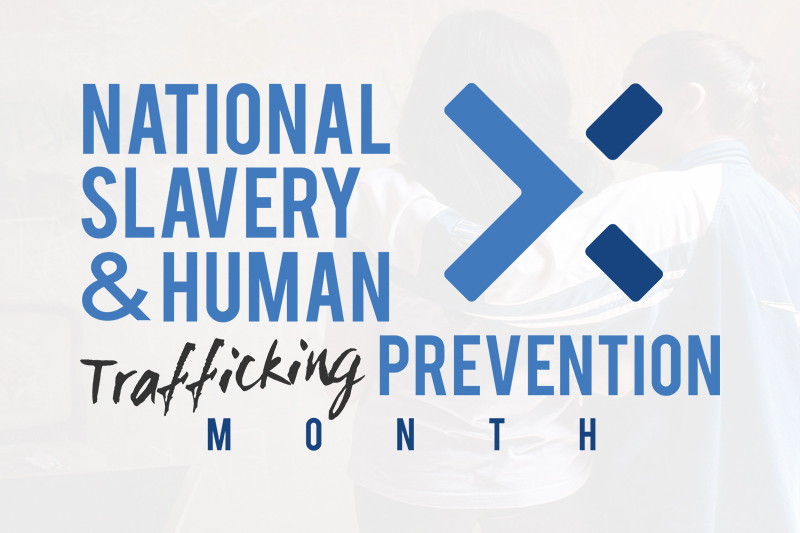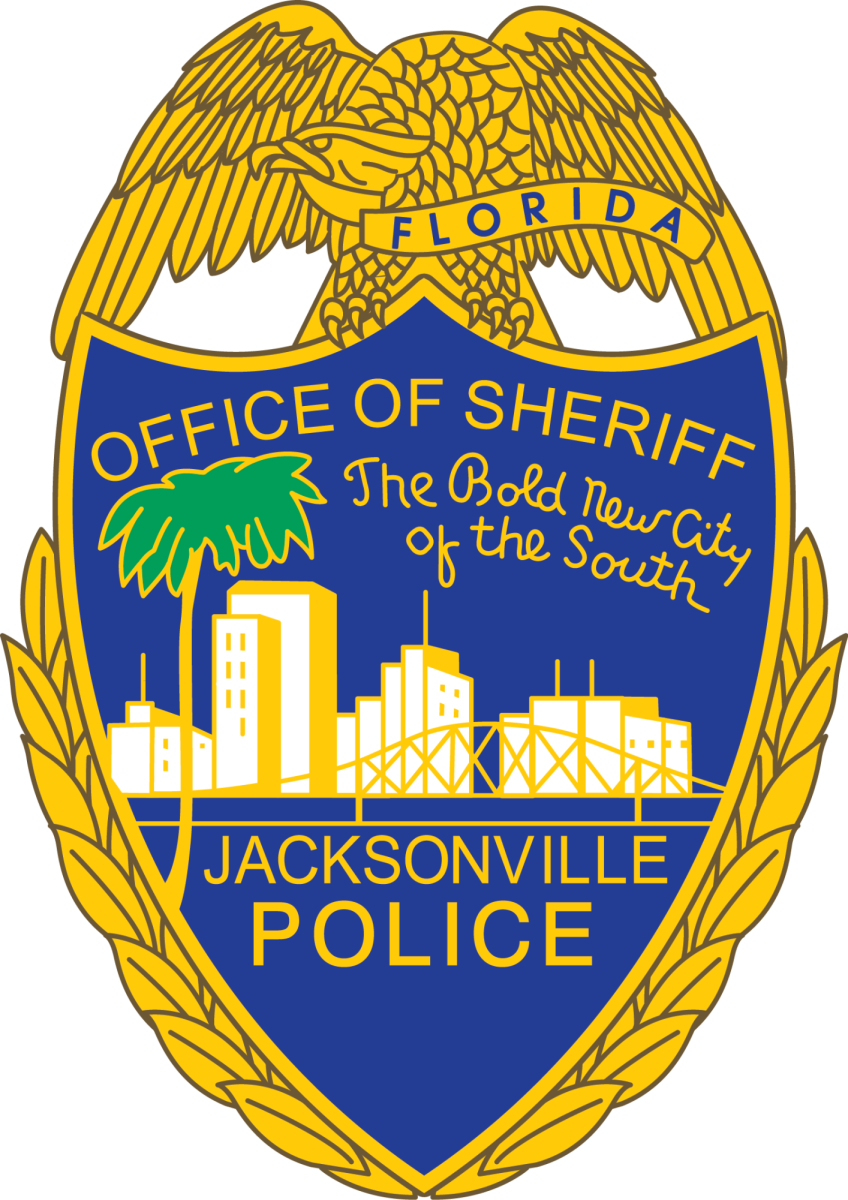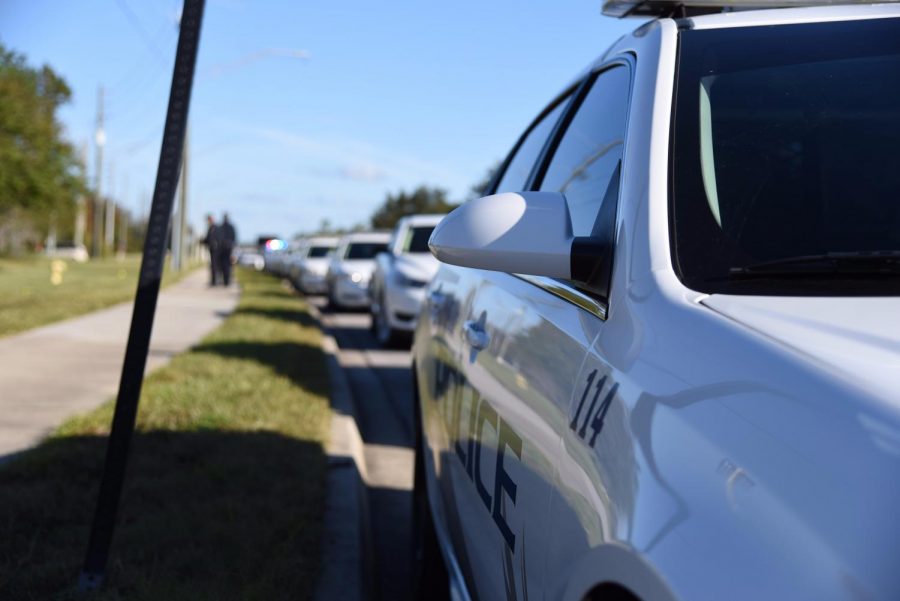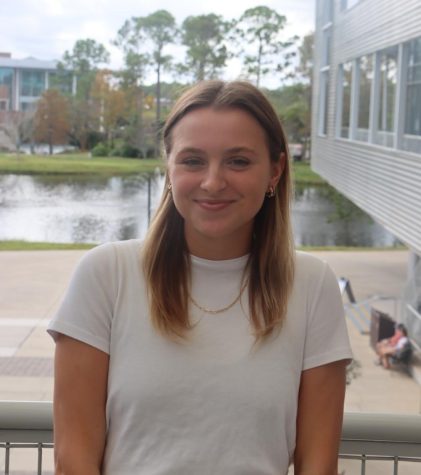Human trafficking is an increasingly prevalent crime that doesn’t look one specific way, which is why it’s happening under most people’s very noses.
Florida is ranked No. 3 in the U.S. for reported human trafficking cases and, being the largest, most populated city, plenty of cases exist in Jacksonville. In 2022, 10 human trafficking victims, including two juveniles, were rescued by the Jacksonville Sheriff’s Office and 74 arrests were made from its human trafficking investigations in 2022, according to JaxToday.
University of North Florida Police Chief Mackesy explained that labor trafficking typically includes bringing people into the country, perhaps illegally, and then exploiting them through extremely low wages and poor living conditions.
Other ways traffickers lure their victims is through social media or by offering false opportunities.
“Probably the place where the greatest level of exploitation occurs is on the Internet,” Chief Mackesy said. “They can get to victims through all kinds of stuff — social media, gaming applications, dating websites, job recruiting.”
He explained that traffickers prey on the vulnerable population, so promises of food and water, or a better life, might be used to attract them.
Understanding a nationwide issue
The Biden administration declared January as Human Trafficking Awareness and Prevention Month last year. It’s a time dedicated to reaffirming the nation’s commitment to ending human trafficking in all its forms, according to the United States White House website.
The United Nations Office on Drugs and Crime (UNODC) explains the crime of human trafficking consists of three core elements— the act, the means and the purpose.
“Human trafficking has many forms. These include exploitation in the sex, entertainment and hospitality industries, and as domestic workers or in forced marriages,” the UNODC website explained.
According to a report from the International Labour Organization (ILO) and the Walk Free Foundation, in partnership with the International Organization for Migration (IOM), “Of these, 17.3 million are exploited in the private sector, 6.3 million in forced commercial sexual exploitation, and 3.9 million in forced labour imposed by state.”
The definition of forced labor as it is used in this report is described as “all work or service which is exacted from any person under the menace of any penalty and for which the said person has not offered himself voluntarily.”
The U.S. Department of State estimates that 27.6 million people are victims of human trafficking at any given time, and victims include people of all ages, backgrounds, nationalities and gender.

“Modern slavery”
The term “modern slavery” is often used interchangeably with human trafficking.
Whitney Washington, the coordinator of victim advocacy at UNF’s Women’s Center, explained that the two compare because they both describe the act of being forced to do something against one’s will.
“Most people think about human trafficking as only sex acts, but say for the state of Florida, we have a lot of immigrants who may be experiencing human trafficking with forced labor,” Washington said. “So, I think that’s why some people make those parallels between modern-day slavery and commercialized labor.”
Human trafficking doesn’t always look like being thrown in the back of a van in a parking lot (although it very much can)— labor trafficking is a crime that often occurs in plain sight; it just might be harder to pinpoint.
Staying safe
Blue Campaign’s website lists several safety tips to be aware of when using social media.

Blue Campaign is a national public awareness campaign dedicated to educating the public on the signs of human trafficking and partners with a variety of groups— including non-governmental organizations, law enforcement and state and local authorities— to increase national attention on anti-human trafficking efforts.
Knowing the signs of a potentially dangerous situation is crucial to preventing these types of crimes from happening to you and others.
“I think education always reduces victimization,” Washington said. “If someone has the ability to know the signs of human trafficking, they’ll be able to identify as well as intervene if they feel comfortable.”
Reports and incidents of human trafficking differ by state, usually proportionate to the population. According to the Florida Alliance to End Human Trafficking, Florida ranks No. 3 in the nation for human trafficking cases reported and No. 2 for labor trafficking cases— with 3,583 victims of labor trafficking identified in 2022.
This may include situations where an employer exploits potentially vulnerable workers due to a variety of reasons like high rates of unemployment, poverty, crime, discrimination and more.
Washington explained that some of the most telling signs that someone might be getting victimized by human trafficking is whether or not they have full access to their personal documents and are in communication with friends and family.
Chief Mackesy said that traffickers take a victim’s personal documents to maintain control and often coerce them on what to say to their family or law enforcement.
The UNF’s Women’s Center and victim advocacy program has worked with multiple community partners for human trafficking, including the Delores Barr Weaver Policy Center and Her Song, an organization aimed at supporting women who are survivors of human trafficking.
Their crisis hotline is (904) 620-1010 for anyone seeking help as a victim of a crime or is experiencing a crisis.
Chief Mackesy encouraged students that if they see something, say something — but they have to know what to look for so increasing education and awareness is a good first step.
___
For more information or news tips, or if you see an error in this story or have any compliments or concerns, contact editor@unfspinnaker.com.
















